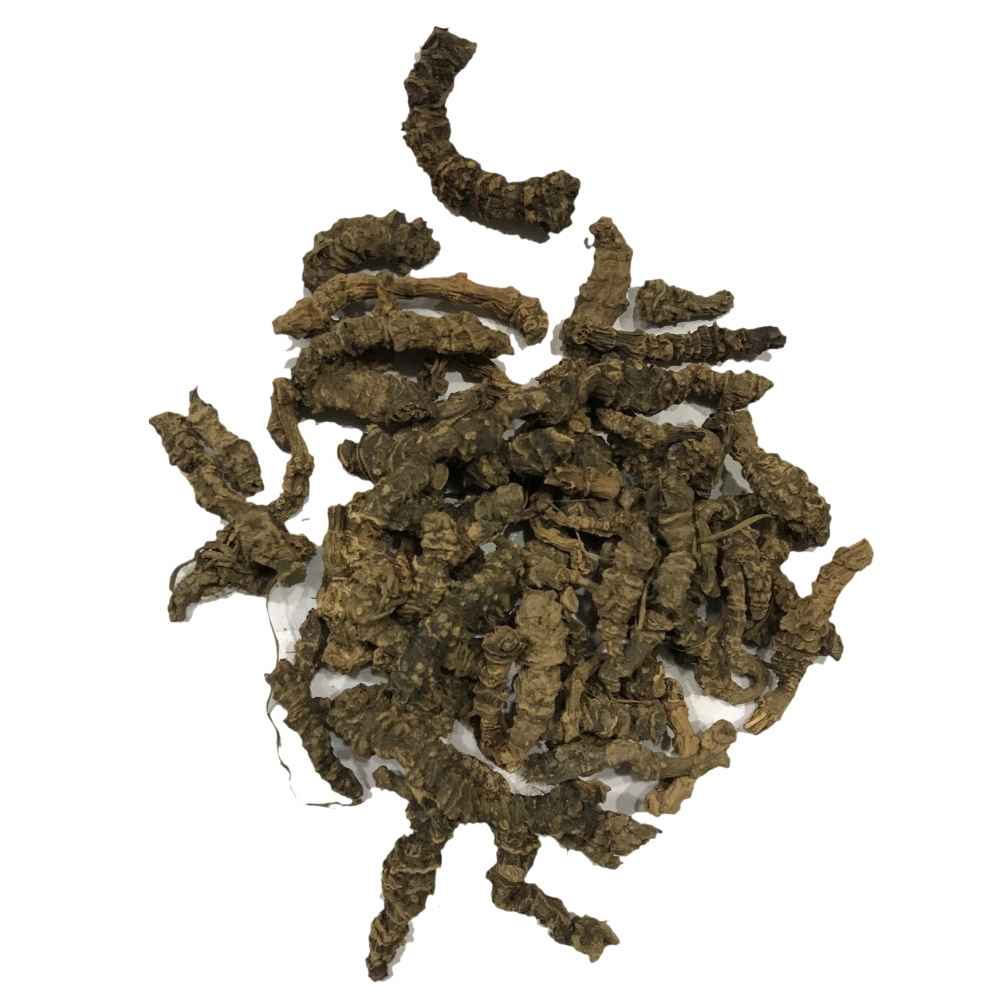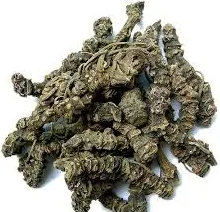Herbal Medicus
Asaroon | Mushk Bala | Indian Valerian | مشک بالا | اساروں
Asaroon | Mushk Bala | Indian Valerian | مشک بالا | اساروں
Couldn't load pickup availability
Arabic Name : Asaaroon
English Name : Indian Valerian
Gujarati Name : Tagar Ganthoda
Hindi Name : Tagar, Sugandh Bala, Mushkbala, Bala Tagra
Latin name : Valeriana wallichii DC
Persian Name : Shanadar
Punjabi Name : Muskwali, Balmudak
Sanskrit Name : Tagara, Tagaraka, Nata, Chakra
Urdu Name : Asaroon, MushkBala
The rhizome of Indian Valerian is a safe, non-addictive sedative and also has anodyne, antiinflammatory, antispasmodic, aromatic, astringent, brain tonic, calmative, carminative, deobstruent, diaphoretic, diuretic, emmenagogue, expectorant, febrifuge, hypnotic, hypotensive, nervine, relaxant, restorative, stimulant and stomachic properties and is prescribed as a remedy for anxiety, mental strain, hysteria, hypochondriasis, nervous unrest, lack of concentration, excitability, and emotional troubles and problems of menopause. It was first recommended for insomnia by Galen. Valerian reduces mental over-activity and nervous excitability, helping people who find it hard to ‘switch off’. It is beneficial for almost any stress-related condition, and, in general, has a calming, rather than directly sedative, effect on the mind. It is sometimes referred to as a “daytime sedative” because it can improve performance, concentration and memory during the day as well as help one to sleep better during the night. Many symptoms of anxiety, including tremors, panic, palpitation and sweating, can be relieved with Valerian. It is a useful remedy for insomnia, whether caused by anxiety or overexcitement. It is also useful in premenstrual tension. It also gives relief in muscle spasms and lowers blood pressure caused by stress and anxiety. Also useful in liver disorders and strengthens the cerebro-spinal system.
Experiments in Italy and Germany conducted for the past 15 years have found that valerian preparations are also effective in treating children with psychomotor agitation (hyperactivity) and behavioral disorders. In fact, in these children, it enhanced motor coordination and maintained reaction time, while calming anxiety and fears, curing restlessness and curbing aggression.
It is also used as a carminative. The drug contains a group of monoterpenic derivatives, known as valepotraites which are useful as tranquillisers and sedatives. The essential oil of the root and rhizome have antibacterial properties.
Some researchers have compared Valerian Root to benzodiazepines such as Valium™. However, Valerian is a much milder and safer sedative. Unlike Valium™, Valerian is not addictive or does not promote dependency. And Valerian’s sedative effect is not significantly exaggerated by alcohol and barbiturates (unlike Valium™), and also has not been linked to any birth defects (again, unlike Valium™). Valerian is also a smooth muscle and skeletal relaxant. It reduces hypertension due to stress and reduces pain from shingles.
Recommended Dosage: 2 to 5 g powder of dried rhizome.
Contraindication: This herb is not recommended for children, pregnant, or nursing women, or those who suffer from low blood pressure or hypoglycemia. This herb should not be combined with alcohol or with other sleep-inducing medications. Because it is a sedative, one should never drive or operate machinery when using Valerian. It is advisable to stop taking Valerian after two or three weeks and then restart; uninterrupted usage is not recommended. Avoid large doses (many times the recommended amount), and if headaches or heart palpitations occur, its use should be discontinued. The herb is not recommended for those taking prescription medications, particularly liver medications, unless a physician is first consulted. Valerian should be stopped about one week before surgery because it may interact with anesthesia.
Share




